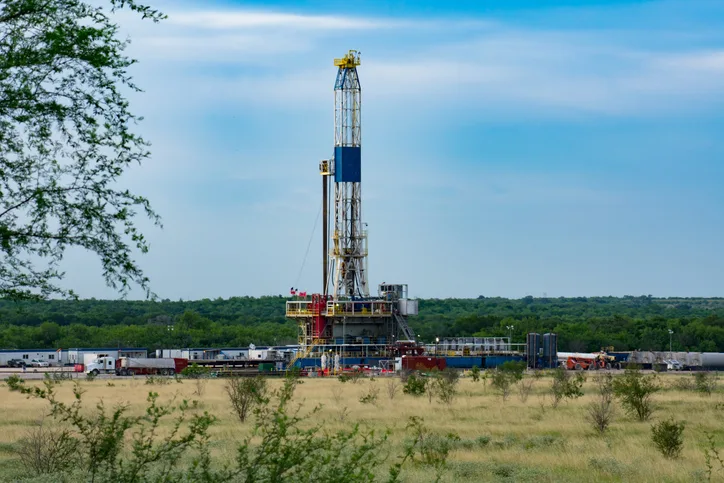
Permian Basin Oilfield Accident Lawyers
The Texas Railroad Commission has taken the rare step of shutting down a wastewater injection well after such operations were implicated in a cluster of strong earthquakes that have recently plagued the Permian Basin.
BlackBuck Resources Challenged Disposal Well Ban
Drillers in the Permian Basin have long relied on injection wells to dispose of the large volumes of wastewater typically produced in fracking operations. However, the practice has come under scrutiny in recent years, as regulators, scientists, and industry experts have concluded that the injections deep underground are behind the recent spate of Permian Basin earthquakes.
In January 2024, the Railroad Commission suspended injection well permits within the Northern Culberson-Reeves Seismic Response Area in response to increased earthquake activity. A total of 23 disposal wells were impacted by the order, including one operated by Houston-based Blackbuck Resources. While other operators complied, Blackbuck challenged the order in administrative court and continued to dispose of wastewater for Chevron, Permian Resources, and other West Texas drilling companies, setting off a year-long legal battle with the commission.
According to The Houston Chronicle, Blackbuck was the only company injecting in the area in defiance of the commission’s directive.
3 Strong Earthquakes in Culberson and Reeves Counties
The Culberson and Reeves County areas have so far experienced three strong earthquakes this year, including a magnitude 5.0 temblor in February and a 4.7 just four days later. In May, the area experienced a 5.4-magnitude quake, which tied the record for the strongest in Texas’s history.
The Railroad Commission had already ordered Blackbuck to suspend operations at the disposal site for 15 days in response to the most recent quake. However, Blackbuck continued to maintain that the well in question is geologically isolated and could not be contributing to the rash of earthquakes. Commissioners clearly disagreed and voted last Tuesday to revoke the permit, shutting down the well.
It’s unclear whether the company will appeal the Railroad Commission’s order. According to the Chronicle, Blackbuck spent about $35 million developing the well, which accounts for about 40% of its overall disposal business.
Zombie Wells, Fracking Wastewater Threaten Groundwater
Permian Basin earthquakes are just one of the undesirable byproducts linked to fracking operations in West Texas. The region has also been grappling with blowouts and leaks from thousands of abandoned, unplugged wells, which are often used by Permian drillers to dispose of fracking wastewater.
“There’s been such an increase in disposal of produced water over the past decade, there’s an overwhelming amount of water being disposed,” Dominic DiGiulio, an environmental consultant and geoscientist who has worked for 30 years at the Environmental Protection Agency, told Inside Climate News last year. “That pressure has to go somewhere. So if there’s a well penetration, then it’s going to move freely up that well penetration.”
Although Texas law requires oil and gas operators to provide financial assurance—such as a bond, letter of credit, or cash deposit—for well plugging, the Texas Railroad Commission often bears the burden of cleaning up wells left behind by defunct companies. As of June 2024, 8,580 orphaned wells were officially listed by the commission. However, there may be many more so-called “zombie wells” that haven’t yet been documented but could ultimately qualify as orphans if abandoned in the future.
When it comes to plugging abandoned wells, the commission’s track record has been inconsistent at best. In fact, a recent investigation by Reuters revealed that several well blowouts across the state in recent years were linked to substandard shut-in, all carried out by drillers and their contractors and ultimately signed off on by the commission.
In many of these incidents, the failure to properly seal the wells allowed billions of gallons of fracking wastewater to migrate and erupt through old, compromised wells. The result: toxic produced water, laced with contaminants like radium and boron, spewed onto the surface and surrounding land.
Permian Basin Drillers Put on Notice
Last month, the Railroad Commission even put the industry on notice: the sheer volume of water being injected is pushing pressure up through old wells in the Delaware Basin, rupturing the ground, and in some cases, spewing toxic fluids to the surface. This “has resulted in widespread increases in reservoir pressure that may not be in the public interest and may harm mineral and freshwater resources in Texas.”
Under new guidance issued by the regulator, oilfield operators will now be required to evaluate old or unplugged wells within a half-mile radius of any proposed disposal site—twice the previous distance requirement. The commission also stated that it intends to limit injection pressures to account for the vulnerability of already stressed underground formations.
If restrictions are placed on shallow injection zones, companies may have no choice but to haul wastewater to more distant disposal sites, invest in recycling systems, or treat the water—each of which carries a much higher price tag than nearby injection. These added costs could pose a significant challenge for oil producers already struggling with declining prices and a dwindling number of high-yield drilling locations.
Undefeated West Texas Oilfield Accident Lawyers: Call 1-888-603-3636 for a Free Consult.
Our Undefeated Oilfield Accident Lawyers have recovered billions in connection with oilfield blowouts, explosions, and accidents across Texas, New Mexico, and throughout the United States, including record-setting verdicts and settlements against the largest oilfield operators and servicing companies in the country.
If you were injured or incurred losses due to a Permian Basin earthquake or zombie well blowout, please call 1-888-603-3636 or click here to fill out our confidential contact form.
We’ll take the time to answer all of your questions, explain your legal rights, and ensure you have the information you need to make the right decision for your family.